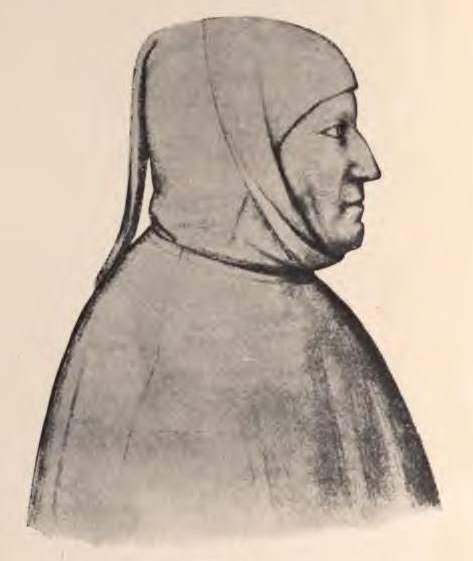
PETRARCH'S SECRET
OR
THE SOUL'S CONFLICT WITH
PASSION
THREE DIALOGUES BETWEEN HIMSELF
AND S. AUGUSTINE
TRANSLATED FROM THE LATIN BY
WILLIAM H. DRAPER
LONDON
CHATTO & WINDUS
MDCCCCXI
FRANCIS PETRARCH
EMILIAE AUGUSTAE
PER ANNUS XXII
COLLABORANTI MECUM, COMPATIENTI, COLLAETANTI
PETRARCAE HOC COLLOQUIUM
MEMORABILE
AMORIS DULCEDINE LACRIMISQUE TINCTUM
IAM DEMUM ANGLICE REDDITUM
GRATUS DEDICO
A. S. MDCCCCXI

CONTENTS
INTRODUCTION
AUTHOR'S PREFACE
DIALOGUE THE FIRST
DIALOGUE THE SECOND
DIALOGUE THE THIRD
Illustrations
Petrarch's Secretum book cover 1470 Petrarch, Veritas (Truth),Augustine and Abbot Crabbe with two attendants. (Wikimedia Commons)(frontmatter).
Petrarca, the profile portrait (see introduction note 3).
INTRODUCTION
Most modern writers on Petrarch agree in stating that of all his worksthe Dialogues which he calls Secretum meum are the one which throwsmost light upon the man himself.
Yet no English translation has hitherto been published. A Frenchversion by M. Victor Develay was issued a few years ago, and receivedthe recognition of the French Academy; and, considering the greatimportance of Petrarch in the history of the Renaissance, not merely inItaly but in Europe, it is time that a similar opportunity of knowinghim more fully was offered to English readers; for there are signs onboth sides of the Atlantic that the number of those interested in himis steadily growing. The reason for this is undoubtedly the fact that,as the whole work of Petrarch comes to be better known, interest in himas a man increases. Mr. Sidney Lee has lately reminded us of his widerange and predominating influence in the matter of the sonnet in Franceand in Elizabethan England, as well as in his own country; and yet thatinfluence was very far indeed from revealing all that Petrarch was.It was largely an influence of style, a triumph of the perfection ofform, and his imitators did not trouble much about the precise natureof the sentiment and spirit informing the style. When this came tobe weighed in the balances of a later day, the tendency of Englishfeeling was to regard his sentiment as a trifle too serious and weak.The love-making of the Cavaliers brought in a robuster tone. When oncethe question was raised, "Why so pale and wan, fond lover?" there wasreally no good answer to it on Petrarchan lines, and the consequencewas that his name and fame suffered something of eclipse among us. Buteclipses are transient events, and when literary England felt once morethe attraction of Italy in the end of the eighteenth century it was notonly Dante who began to resume his sway and to provoke translation, butPetrarch also. Then attention was turned chiefly to his Italian poetry,but also in some degree to the general body of